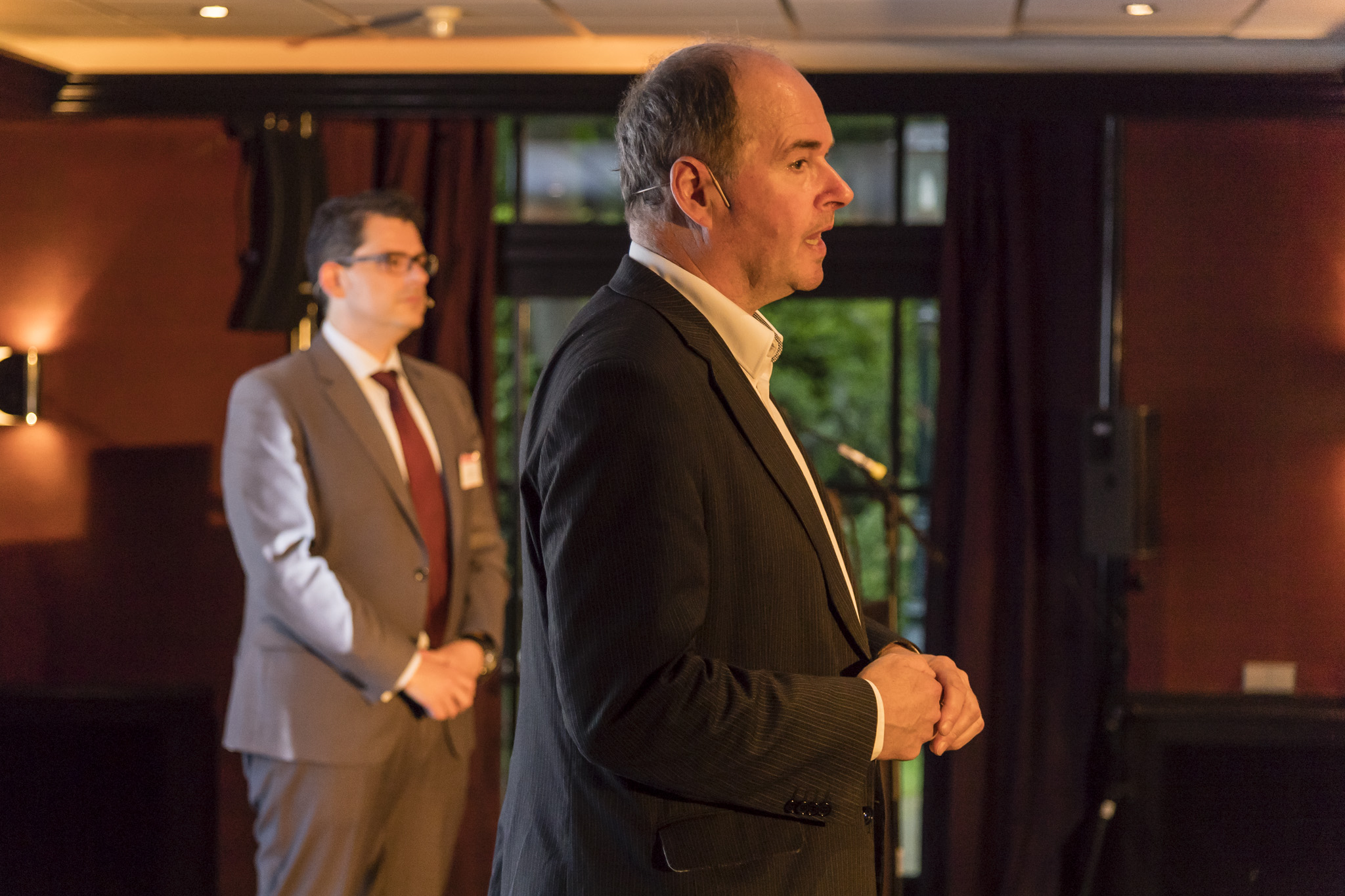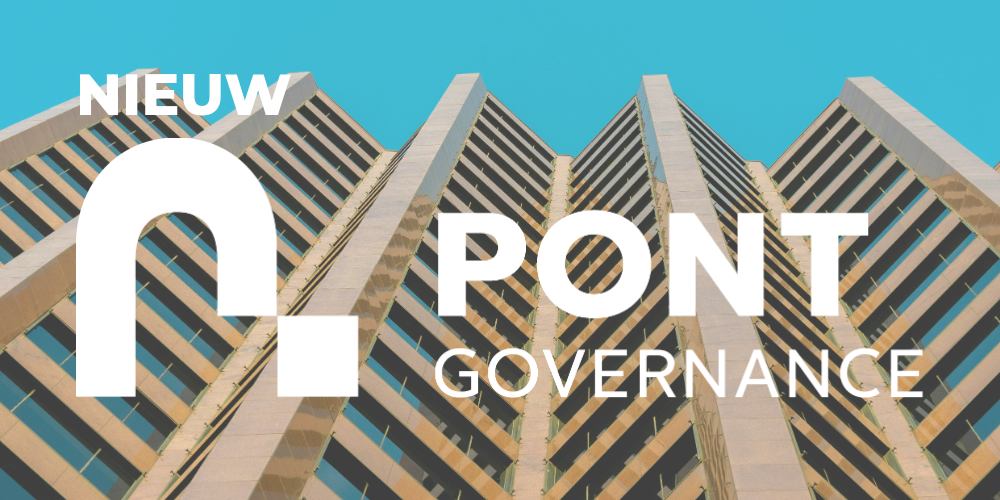Frank van den Nieuwenhuijzen
During the closing dinner of the annual meeting of the Risk and Compliance Platform Europe, Professor Ronald Jeurissen and Professor Sharon Oded debated moral muteness and integrity deafness. Professor Jeurissen stressed the importance of breaking through moral muteness among employees. Professor Oded agreed, but added that integrity deafness within an organisation is at least equally important to address.
Prof. Jeurissen, Professor of Business Ethics at Nyenrode Business University, was the first to address the topic. He explained that years ago managers did not like to talk about ethics. Prof. Jeurissen referred to an article of 1989, according to which there are three key reasons for moral muteness within organisations: it can disturb the harmony between people, it may lead to inefficiency, and it can come across as weak behaviour. Jeurissen added a fourth reason: “Moral uncertainty. Ethics are unreliable, because how do you know what is right?”
Manager’s moral muteness
The former three reasons for moral muteness no longer apply, argued Prof. Jeurissen: “Nowadays managers are more and more able and willing to voice values. Company values are much talked about. I believe this is the alternative to this old paradigm of moral muteness.” Jeurissen believes this shift has to do with the dominance of the economic paradigm that in his view has ruled over us for decades. “Economists should be very careful in their contribution to the public debate. They should only talk about the boundary conditions.”
Having a moral vision is important for business leaders. “You need the ideal first, and then you should look at the budget. Not the other way around.” Managers who voice values are needed. Jeurissen shared his advice: “Principles must come first in a business; they should override consequences. Secondly, moral imagination is important; earning money while solving social problems. Lastly: always remember that the ideals of today will be the reality of tomorrow.” Prof. Jeurissen concluded that talking about integrity should not be seen as a threat to harmony. In fact, nowadays it creates harmony. “There is no reason for managers’ moral muteness any longer.”
Necessary surveillance
When asked about his thoughts on spending millions for integrity management, Prof. Jeurissen stated: “Managers say integrity is just as important as profit. Yet they do not invest in it, because it is not tangible and urgent. So budgets are low, and people do not make the connection between integrity and big company risks.” The question Jeurissen has been struggling with is whether internal or external pressure is needed.
The attendees, who were enjoying a fine dinner, believe in the latter. One of them pointed out that it is also important for managers to handle the integrity issue with a neuroscientific approach, since a lot of human behaviour is unconscious. Prof. Jeurissen agreed.
Integrity deafness within organisations
Prof. Sharon Oded, Professor of Corporate Compliance and Enforcement at Erasmus University Rotterdam and a Senior Associate at De Brauw Blackstone Westbroek, agreed with Prof. Jeurissen on the importance of having moral vision within organisations. Prof. Oded suggested that voicing moral values and serving as ethical role models within organisations is only part of the role corporate leaders could play. Prof. Oded: “An important challenge within organisations is integrity deafness. Even when corporate employees are willing to speak up and share concerns relating to potential non-compliance, they are not always carefully listened to or taken seriously enough.”
Prof. Oded mentioned the Olympus case which according to the media received internal reports by its own Compliance Officer, John Slowik, in relation to a scheme to pay kickbacks to doctors and hospitals. Apparently, after Slowik’s internal reports were insufficiently listened to, Slowik filed a qui tam lawsuit, which was followed by a government investigation. Earlier this year, Olympus reached a settlement with US authorities and agreed to pay USD 646 million to resolve the matter. Slowik himself will receive USD 51 million from the civil settlement amount.
“Employees’ incentives to report to the authorities’ concerns relating to corporate misconduct are on the rise, particularly in the US”, explained Oded. “Several US laws, most notably the Dodd Frank Act, offer employees substantial financial awards for bringing original information to the authorities in relation to corporate misconduct. In spite of the external motivations, corporate employees do share their concerns internally. Nevertheless, corporations do not always listen and act upon those reports, which in some occasions end up with painful enforcement actions.”
Prof. Oded referred to the U.S. Securities and Exchange Commission data, according to which of those employees who received a whistleblower reward based on the Dodd Frank Act, approximately 80% raised their concerns internally to their supervisors or compliance personnel, or understood that their supervisor or relevant compliance personnel knew about the violations before reporting their information about wrongdoing to the authorities. Similar indications are offered by the Ethics Resource Centre (ERC) survey of 2012, according to which 84% of whistleblowers report to the authorities only after first trying to report internally.
According to Prof. Oded, the problem of integrity deafness increases the risk that concerns raised by employees internally will find their way to enforcement authorities and the media and then cause substantial financial and reputational damage to the company. While promoting ethical behaviour within the organisation, corporate leaders should also be attentive to concerns raised by employees and make sure that those are taken seriously and acted upon as needed. By offering a meaningful internal alternative to corporate employees, their motivation to share their concerns with the authorities or with the media may be chilled.
Prof. Jeurissen commented that “Discussions about ethics within organisations are taboo, and that causes both problems. Companies should not only encourage speaking and listening, but they should also promote the discussion and debate about company goals, and ambitions. Ideals are more important than preventing crossing boundaries.”
Questions from the audience
Owen Strijland of Protiviti commented: “It is often more interesting for a whistleblower to report outside than trying to be listened to inside. How about making the internal incentives more like external incentives?” Oded replied: “Offering financial rewards to employees for internal reporting is indeed something that may be considered by organisations as long as they do not prohibit external reporting. In my view, offering such rewards may be counterproductive. Apart from the fact that it may encourage shame reports, it may also not always coincide with the ethical message that organisations want to provide to their employees. Personally, I would prefer a corporate culture that sends a signal to employees about their duty to raise concerns, than the one that rewards them for doing so.”
Pierre Lommerse from Piramide asked: “What if people want to speak up, but they are afraid of what will happen to them?” Oded responded: “If employees are scared to speak up, it means the company’s internal reporting system is not operating effectively. To encourage your employees to speak up, it is important that you demonstrate in action, not only in words, your no-retaliation policy. Corporate leaders should create a business environment that encourages employees to speak up.”
Jeurissen wondered where this fear originates. Tony de Bree, formerly with ABN Amro, added: “People are scared of losing their jobs because of reorganisations. They think opening their mouths means they get on the exit list quicker.” Jeurissen concurred that it was a: “Good point.”
Another attendee queried: “How can you tell if an organisation is improving its active listening?” Oded replied: “One of the key components of every good internal reporting whistleblowing system is effectiveness assessment. Corporations may have internal policies, whistleblowing hotlines, trainings and awareness campaigns, but what works for one company or one region does not work for the other. Therefore, assessing your own internal reporting system is key. Companies could analyse the type and volume of reports per year, and use tools such as questionnaires and interviews to assess employee awareness to the internal reporting system. Once they get the relevant input, it is important that they take actions to constantly improve their own internal reporting systems.” Jeurissen added: “You can measure the ethical culture of an organisation by discussing ability and supporting ability. These aspects are part of the eight dimensions of an ethical culture developed by Professor Muel Kaptein and others
Professors debate: Moral muteness and integrity deafness
20 juli 2016
Kennisbank


